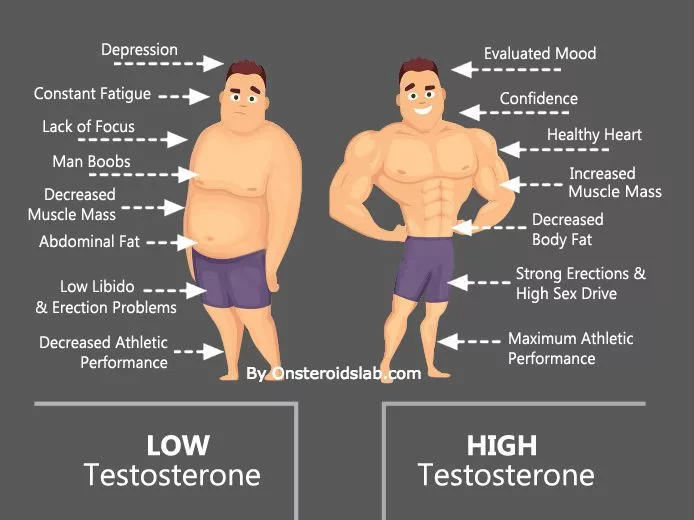What is Human Chorionic Gonadotropin (HCG)?
Human Chorionic Gonadotropin (HCG) is a naturally occurring hormone primarily produced during pregnancy by the placenta. This hormone plays a vital role in sustaining pregnancy by stimulating progesterone production, which is essential for maintaining a healthy pregnancy.
HCG’s applications extend beyond pregnancy. In male patients, HCG injections serve as a fertility treatment by stimulating testicular production of both testosterone and sperm.
Clinical Applications of HCG in Men
Hypogonadism Management:
Hypogonadism, characterized by deficient sex hormone production, results in inadequate testosterone levels in males. HCG therapy stimulates testicular testosterone production, effectively addressing hypogonadism symptoms.
Fertility Enhancement:
For men experiencing infertility, HCG mimics luteinizing hormone (LH) activity, triggering testosterone production in the testes. This process is crucial for spermatogenesis, potentially improving fertility outcomes.
Pediatric Cryptorchidism:
HCG administration may facilitate testicular descent in cases of undescended testicles in prepubescent males.
Performance Enhancement:
Athletes and bodybuilders sometimes utilize HCG to boost endogenous testosterone production, potentially enhancing muscle development and athletic performance. Note that such off-label use lacks FDA approval and violates most athletic governing bodies’ regulations.
Testosterone Replacement Therapy Adjunct:
During testosterone replacement therapy (TRT), HCG helps maintain testicular volume and preserves natural testosterone production, which exogenous testosterone administration might otherwise suppress.

Mechanism of Action: HCG and Testosterone Production
HCG functions analogously to luteinizing hormone (LH) in males, activating Leydig cells within the testes to produce testosterone. This androgenic hormone mediates numerous physiological processes in male development and function.
Additionally, HCG influences spermatogenesis within the seminiferous tubules by supporting sperm cell maturation. Through dual stimulation of both testosterone and sperm production, HCG administration promotes gradual testicular enlargement due to enhanced cellular activity.
This combined effect on testosterone synthesis and spermatogenesis makes HCG valuable for addressing various male reproductive health concerns.
HCG in Hypogonadism Treatment
HCG serves as an effective therapeutic intervention for hypogonadism by directly stimulating Leydig cells, bypassing disrupted hypothalamic-pituitary signaling pathways. Regular HCG injections mimic LH activity, restoring testosterone production and alleviating hypogonadal symptoms including fatigue, diminished libido, and mood disturbances.
While not a permanent solution, HCG therapy provides temporary testosterone stimulation, sometimes combined with TRT for optimal clinical outcomes.
HCG in Fertility Management
In reproductive medicine, HCG facilitates ovulation induction in women undergoing assisted reproductive technologies. For male fertility cases, HCG enhances spermatogenesis by increasing testosterone levels, potentially improving sperm parameters including count, motility, and morphology.
Such applications should always occur under specialist supervision to ensure appropriate dosing and monitoring.
HCG in Testosterone Replacement Protocols
When incorporated into TRT regimens, HCG prevents testicular atrophy and maintains endogenous testosterone production that exogenous testosterone might otherwise suppress. This approach preserves fertility and testicular function during long-term androgen replacement.
Dosing strategies should be individualized under endocrinological supervision to achieve optimal therapeutic outcomes.
Safety Considerations
When administered under medical supervision, HCG demonstrates a favorable safety profile. Potential adverse effects may include headache, fluid retention, breast tenderness, or injection site reactions. Rare but serious complications like ovarian hyperstimulation syndrome (in women) or thromboembolic events require immediate medical attention.
Professional medical oversight remains essential for safe HCG utilization.
Global Availability
MedsBird provides international access to pharmaceutical-grade HCG, serving patients in:
- United States: Nationwide discreet delivery
- Canada: Comprehensive service across provinces
- Australia: Reliable nationwide distribution
- United Kingdom: Secure delivery throughout the region
While prescription-free ordering is available, professional medical consultation remains strongly recommended before initiating therapy.
Conclusion
HCG represents a versatile therapeutic agent with applications spanning reproductive medicine, endocrinology, and fertility management. Its ability to stimulate testosterone production and spermatogenesis makes it particularly valuable in male health. While online accessibility has improved treatment availability, professional guidance remains crucial for safe, effective use – particularly regarding potential impacts on sexual health and overall wellbeing.
Reference:







